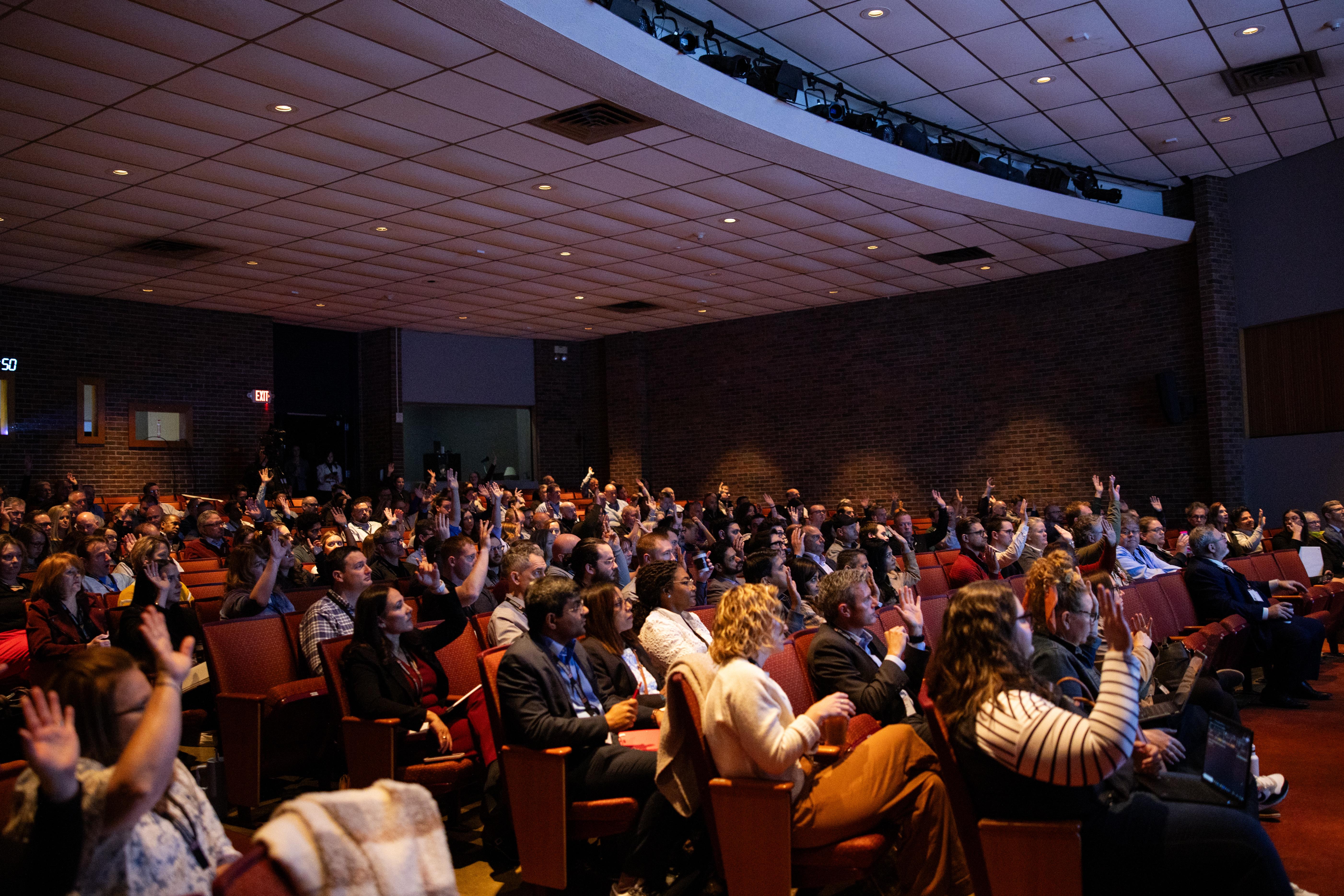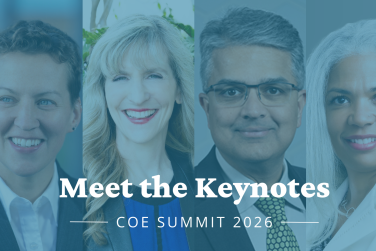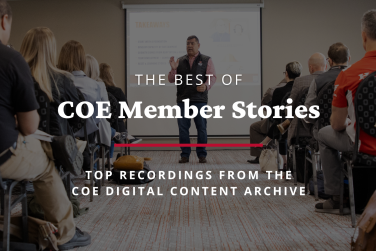
The Seeds of Change: What the COE Summit 2025 Taught Me About the Future of Work
The Center for Operational Excellence recently hosted the 12th Annual COE Summit. This year’s conference focused on the power of people and the critical connection between strong teams and strong performance. Through four engaging keynotes, 20 breakout sessions, and exclusive opportunities for hands-on learning, the COE Summit equipped participants with tools and tactics for connecting, collaborating, and reach their full potential with OpEx. In this blog, Joe Boroi—a COE Summit participant and IBM technology leader—reflects on his experience and learnings.
I recently had the opportunity to attend the COE Summit 2025 at The Ohio State University, and I walked away not just inspired, but fundamentally moved by everyone I met.
Lessons from the Long Game
Mike Doss, the former NFL safety, has done something few athletes have: he’s won championships at every level. From his high school state championship game in the Rubber Bowl to a Buckeye national championship and eventually a Super Bowl ring with the Colts, Mike reminded us that greatness isn’t luck, it’s preparation. His story is a masterclass on laying the right foundation for change and value creation. He taught us about preparation and the long tail effect it can have on our future.
The seed sacrifices everything to become something great. It takes a leap of faith to believe this and let change in our lives take root. These ideas really stuck with me after Mike’s keynote. His message wasn’t just about preparation in sports, but it was about leadership, change, and transformation. We’re all planting seeds right now in our careers, on our teams, and in our organizations. If we nurture them with vision, belief, and relentless effort, then they can grow into something remarkable.
In a breakout session, Professor Larry Inks delivered a powerful mental model for change: Change = D × V × P (Dissatisfaction × Vision × Process). If we aren’t dissatisfied with today, we won’t move toward tomorrow. If we don’t have a compelling vision, we’ll spin in circles. Without a process, nothing sticks. It made me reflect on the importance of listening and framing problems when helping clients think about their transformation. It also clearly articulated just how important it is to lean into and understand all three of these elements of the Dr. Inks equation.
Agentic AI, Automation, and the New Gemba
For many, one of the most mind-opening moments came from a breakout session with Professor Hun Lee, who shared research on AI adoption. From digital assistance to AI that pursues goals on our behalf, we are moving toward a future filled with creative and productive potential, but it also raises the question: In a world where creativity and productivity are abundant, will they lose their value?
Organizations are becoming flatter, more automated, and more autonomous. This point was driven home by Theodore Karagias, as his breakout session discussed ways in which Platform Engineering culture is now moving into other areas of operations. With this in mind, I started wondering: How do we maintain meaning in our work? How do we lead differently?
In another breakout session, Chris Weisbrod reminded us that leadership still means going to the Gemba, to the place where work happens, to ask humble questions. However, what happens when the Gemba is digital or when machines and objects are given language, and we can interact with them?
It isn’t a stretch to assume any object can describe its own lifecycle, status, or intent through a simple QR code, vector database, and LLM. This is now the basic reference architecture for some use cases operationalizing RAG (Retrieval-Augmented Generation) through digital assistants. RAG is an AI technique that enhances large language models (LLMs) by enabling them to access and incorporate external knowledge sources before generating responses, leading to more accurate and relevant outputs. As RAG moves closer to the edge and more objects become things we interact with in our environment, will leaders of the future need to “speak machine” or teach machines to understand us with empathy?
After Chris presented, I also reflected on past IBM projects where Spot the Robot does quality checks at DOW Chemical, or where drones are out inspecting transmission lines, solar farms, or oil rigs. Will we one day train robots to go to the Gemba? Will they just collect data, or will they carry wisdom?
Beauty Park, Bath & Body, and the Doss Playbook
A personal highlight was touring Beauty Park, where Tom Mazurek and Chris Spangler later shared in a breakout session how Bath & Body Works has spent more than a decade laying the groundwork for agility, automation, and visual inspection. Their foresight has created a playbook for operational excellence that echoes Mike Doss’ story: start early, build discipline, win, and repeat by capitalizing on your preparation.
I met leaders from Bread Financial, DHL, Agrana Fruit, and more. But one moment truly helped bridge the gap between the physical agility of Beauty Park and the practicality to scaling it to anything.
During Dr. Brodie Riordan’s keynote, she asked us to turn and interview the person next to us. By pure chance, I sat beside Sonjaya Fanseka from Honda, and what a conversation it was. He explained how their Marysville plant is learning from innovations in New Albany, using cross-functional teams, simulations, and digital twins to run agile experiments that are transforming operations and design alike. It was a window into how smaller scale test-and-learn thinking is reshaping manufacturing in big ways.
Leaving with Confidence, Returning with Purpose
I left the COE Summit not only energized by what’s possible through IBM technology, from AI to automation to digital twins, but also reminded of something deeper:
Whether we’re interacting with humans or machines, going to the Gemba still requires passion, humility, and empathy. Maintaining human dignity should always be of utmost importance in how we think about work and operational excellence. Because no matter how smart our systems get, the future of work will always somehow be human at its core.
Missed the COE Summit? Eager to learn from the sessions Joe mentions above? COE members can access session recordings and slides for most Summit sessions on the members-only Digital Content Archive. Don’t have an account? Create an account.
Questions? Reach out to COE Marketing & Communications Associate Hannah Conklin at conklin.157@osu.edu.







